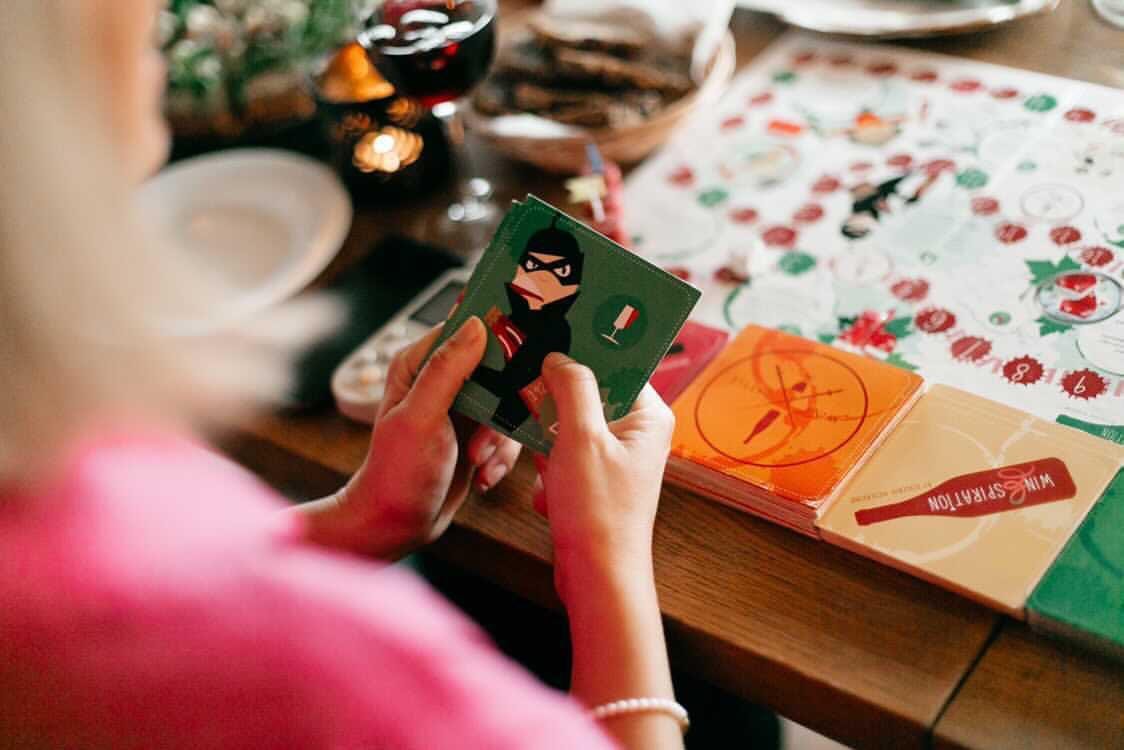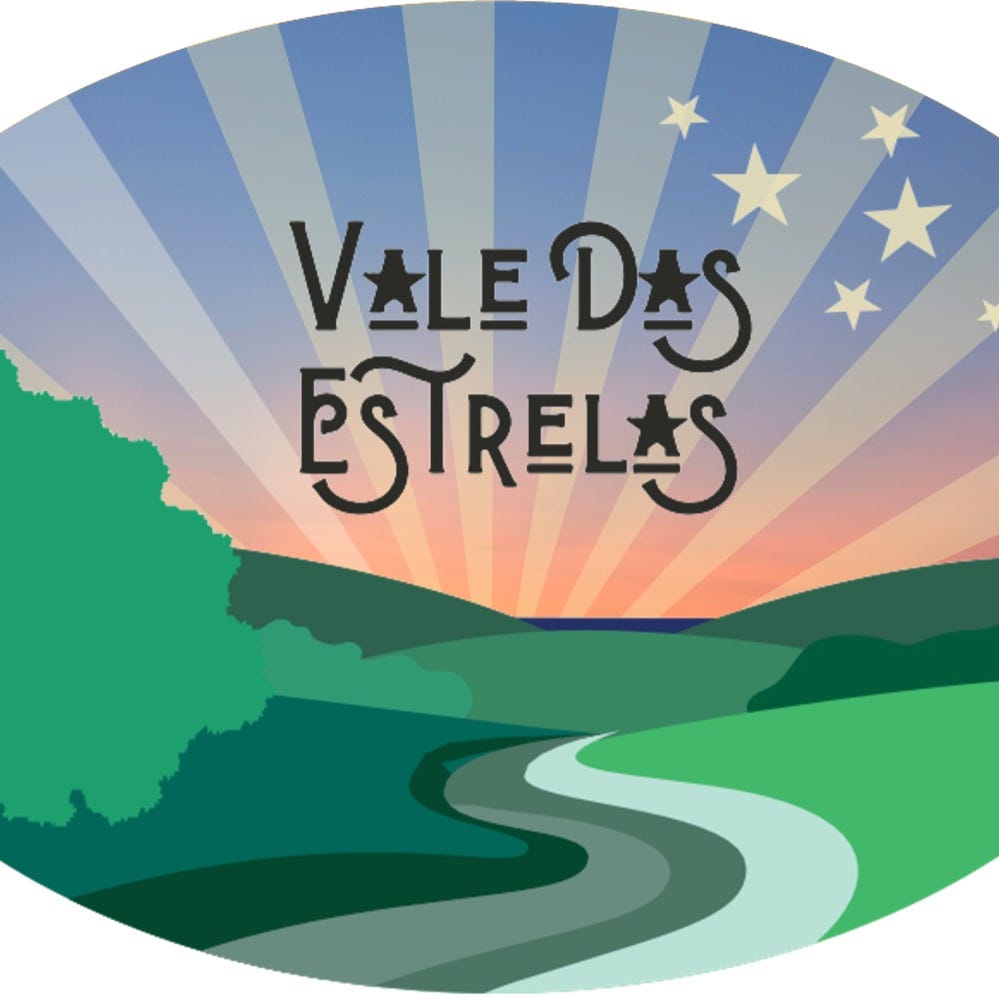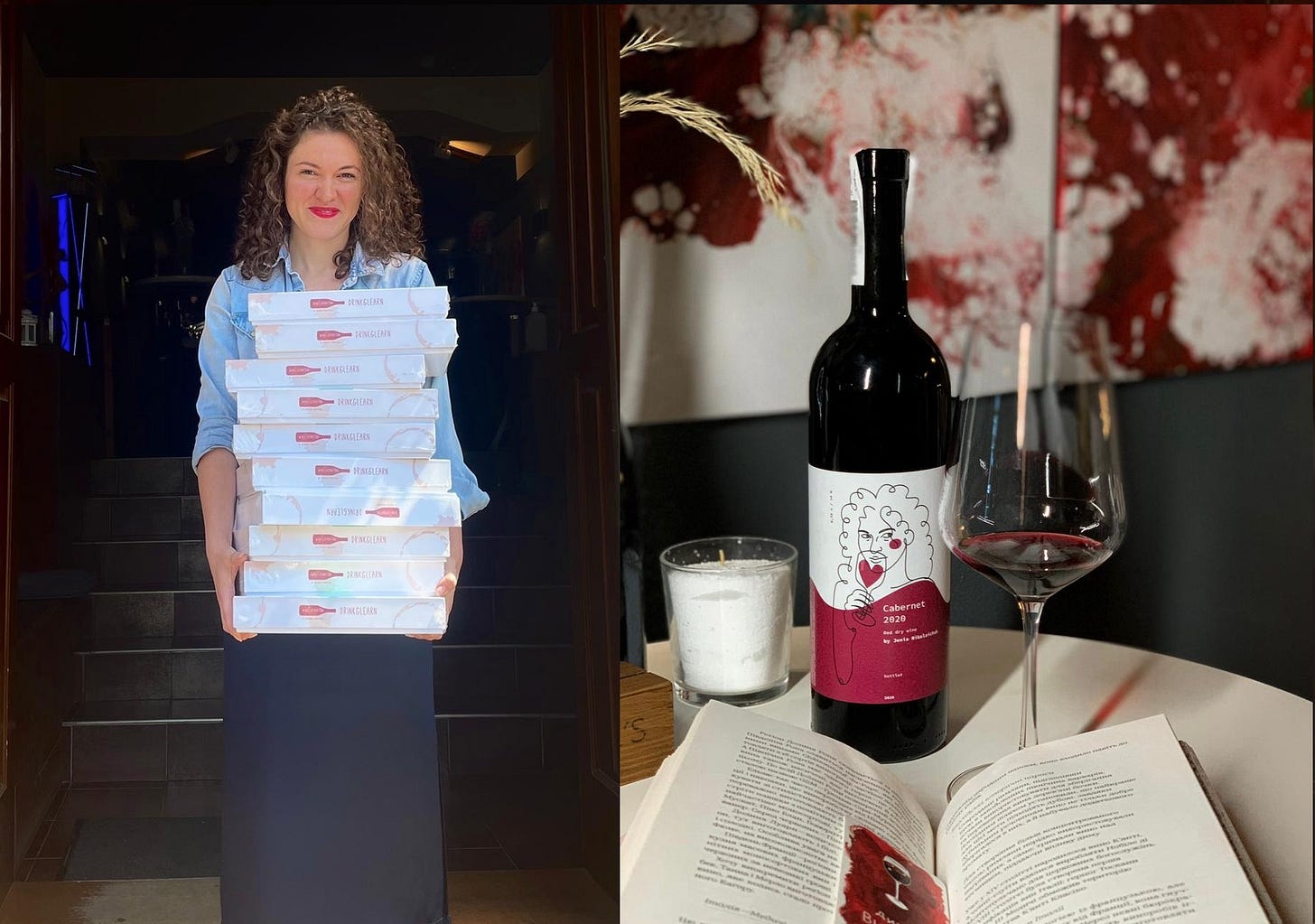The quiet vineyards and olive groves of southern Portugal are about as far from the war in Ukraine as imaginable.
At Herdade do Rocim’s winery, the silence of the rolling Alentejo hills is only broken by the chirping of the little birds which feature so prominently on their wine labels.
But the story of a family fleeing for their lives, a week-long journey across Europe, and the dreams, ambitions and livelihoods crushed by the Russian invasion are now close to home even here.
As millions of Ukrainians have been forced to flee and to depend on the generosity and kindness of strangers, it was the extended family of wine which brought Eugenia Nikolaichuk from a basement in Kyiv to a wine cellar in Alentejo.
Two days before the war, 35 year old Jenia was partying in the country’s capital where she owned the Like a Local’s Wine Bar chain, taught at wine schools and had developed a board game to help people learn more about wine.
Now she is working at Herdade do Rocim in Alentejo and staying in the company guesthouse with her seven year old daughter Nika, her mother Inga and niece Victoria.
“It's not easy, to sit underground in...it wasn’t even a bomb shelter. I used to sit in the cellar with a small daughter and you hear all kind of explosions. So we escaped on the second or third day,” Jenia told us.
The family fled west and stayed close to the Romanian border for three weeks, “just to know that...in case of escalation of conflict we could just run away.”
From there the wine industry network stepped in, and Rocim winemaker Pedro Ribeiro offered Jenia a job and a place to stay. After a week of travel they made it to Alentejo.
“It's my third time in Portugal, and I'm totally in love with Portugal and totally in love with the cuisine, with people, with nature,” she said.
“I always worked with wineries, but I didn't have an experience of working inside the winery, so I want to believe it’s a great opportunity for me...I pretend it's like a mentorship internship.”
We met Jenia on a podcast recording trip to the Vila de Frades area of Alentejo which is known for its modern approach to talha winemaking – using Roman-style clay amphorae – and for Pedro Ribeiro’s €1,000-a-bottle wine Júpiter.
The other country known for amphorae winemaking dating back to Roman times is Georgia where it’s called qvevri, and it’s a tradition that has also recently been revived in Ukraine.
Jenia’s Like a Local’s Wine Bar only served Ukrainian-produced wine and before the invasion the number of winemakers and vineyards was increasing.
“The great thing about Ukrainian wine is it’s just starting...we are still trying to find our identity,” said Jenia.
“We have a lot of international grapes of course, but we have started to pay attention to our own grapes.
“One of the most interesting is Telti Kuruk – a white grape, an interesting grape - I would say it's something between Sauvignon Blanc and Chardonnay.”

Their most famous black grape variety is Odessa Black named after the port city which is now a tragically familiar symbol of the Russian bombardment in the country’s south.
“It's a cross of Alicante Bouschet and Cabernet Sauvignon. You don’t have a lot of Alicante Bouschet anywhere in the world except here in Portugal...so that’s another interesting thing for me,” she said.
Five years ago there was only one producer Jenia could find officially on the market – last year there were 33 at Odessa Wine Week Fair – but most of Ukraine’s vineyards are in the south and have been directly in the line of fire.
Jenia showed us text messages from some of her winemaker friends including one who escaped Mariupol after weeks of bombardment, and a video of vineyards set on fire by Russian troops.
“I had a project there – a private label – we made a small amount of wine together with my face on the label, but now there is nothing left. Even in World War Two the Nazis stole from wineries, but they didn’t destroy. Why do they do this?”
While working at Rocim, Jenia hopes to find a global producer for Winespiration – the board game she invented and produced in Ukrainian, Russian and English to help people learn more about wine.

“Up until the end of February I had big plans, starting to sell it on Amazon and any other marketplaces to sell it in USA, and maybe UK.
“As soon as I will find a new place to produce it I hope I will have an opportunity to sell it worldwide as I planned before.”
She is hugely grateful for the help she’s received in Portugal and from Herdade do Rocim.
“That's a big support for us because unfortunately, we lost everything. And now we should start our life from zero point.”
If you know any manufacturers of board games who could help Jenia please let us know and we’ll pass on the details.










Ola, Alistair. I have no email for you ... or any other way to reach you. Just wanted to let you know that On war and wine was just published in Portugal Living Magazine. You can access the entire issue here:
https://portugallivingmagazine.com/our-current-issue/
Best wishes,
/Bruce.